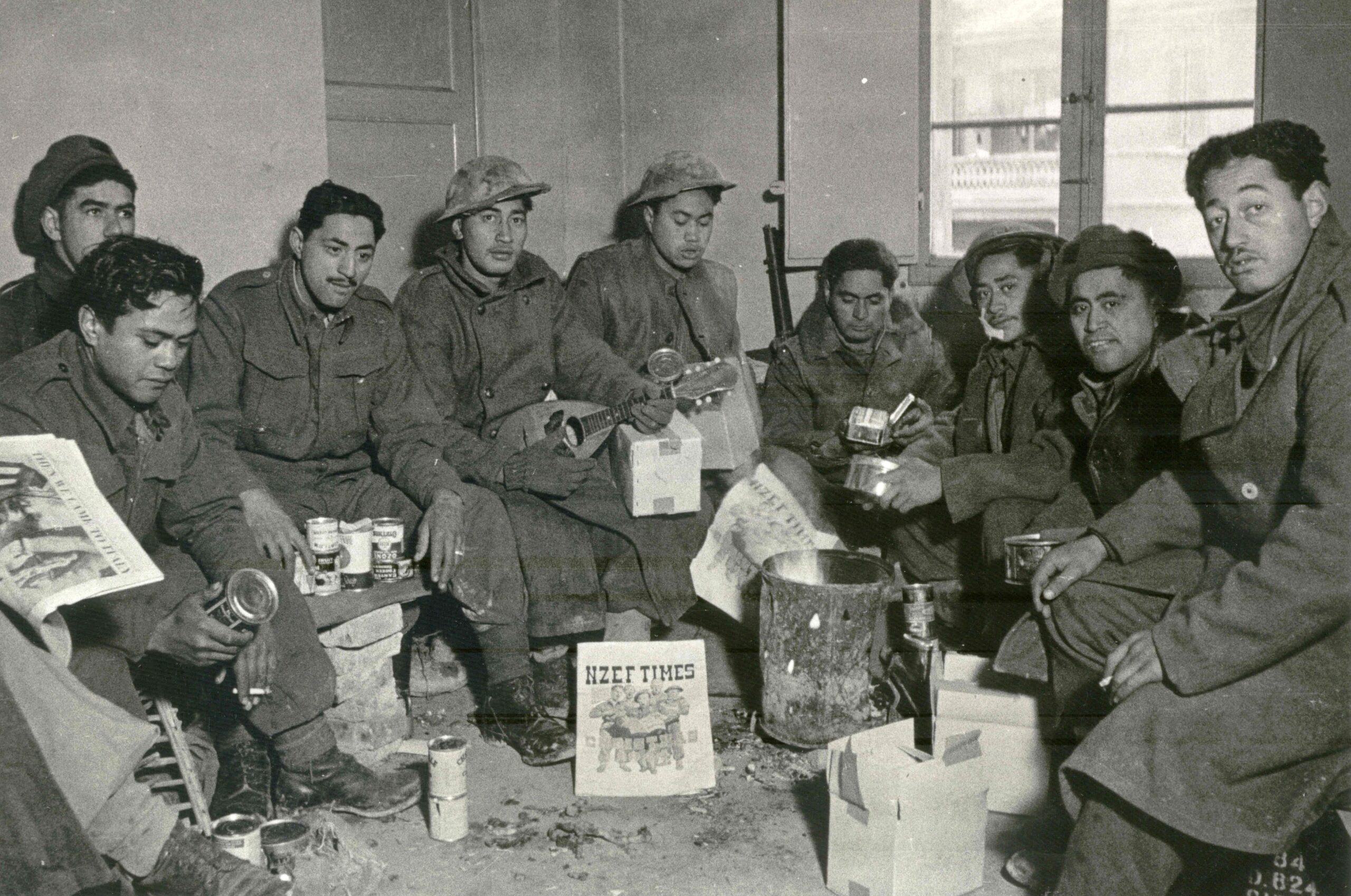 DA 7987. Christmas parcels from home, Italy, December 1944
DA 7987. Christmas parcels from home, Italy, December 1944The Māori warrior tradition originates from the deity of action and warfare Tūmatauenga.
WWI saw a contingent of Māori soldiers eventually granted permission to serve as part of the New Zealand Pioneer Battalion.
At the start of WWII Māori politicians including Sir Apirana Ngata put pressure on the Labour Government to raise a stand-alone Māori unit for overseas service. Māori elders were largely supportive of a Māori Battalion to ensure their war contribution would be recognised as an assertion of rangatiratanga, and to contribute to the collective war effort. This was the ‘price of citizenship’.
The 28th Māori Battalion was part of the 2nd New Zealand Division, the fighting arm of the 2nd New Zealand Expeditionary Force (2 NZEF). The battalion’s four companies were organized along iwi lines while HQ Company drew its members from all over Māoridom.
The 28th Māori Battalion had their first taste of action in Greece, followed by Crete. Their fierce reputation would follow them into the Western Desert. For his actions at Tebaga Gap, Second Lieutenant Te Moananui a Kiwa Ngārimu was posthumously awarded the Victoria Cross. After the Western Desert campaign, the Māori Battalion sailed to Italy where the Battalion was often used to spearhead the attacks.
The 28th Māori Battalion was the most decorated of all the WWII New Zealand battalions, fought in all the major campaigns, and suffered the highest casualty rate. Lieutenant-General Bernard Freyberg, Commander of the 2 NZEF commending the 28th Māori Battalion, said “No infantry had a more distinguished record, or saw more fighting, or alas, had such heavy casualties.”
Despite their distinguished war record, returning Māori officers found their efforts to foster Māori cultural and economic autonomy hampered by government bureaucrats. Māori soldiers were not afforded the same financial assistance and land grants as Pākehā soldiers.
Today, Māori personnel serve across the three services of the New Zealand Defence Force (NZDF), Royal New Zealand Navy, New Zealand Army, Royal New Zealand Air Force. In 1995 the New Zealand Army was conferred iwi status by respected Māori elders including surviving members of the 28th Māori Battalion. It became Ngāti Tūmatauenga – an army with a tribal identity.
We Shall Remember Them